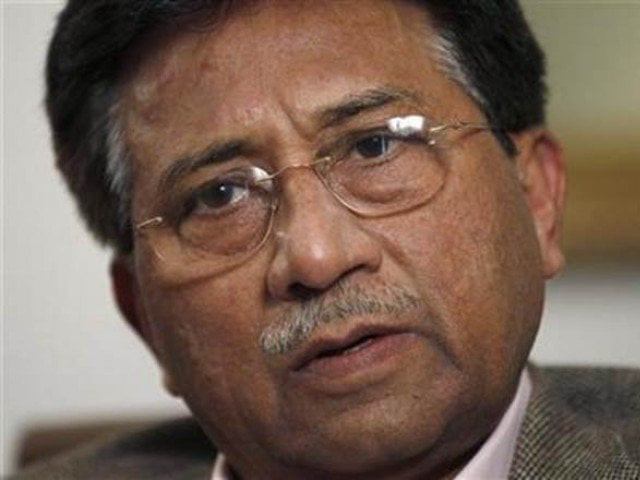Petition challenges LHC verdict in Musharraf case
Says special court constituted according to law; LHC had no jurisdiction to hear case

Says special court constituted according to law; LHC had no jurisdiction to hear case. PHOTO: FILE
A three-judge special court on December 17, 2019 convicted the former military ruler for subverting the Constitution in November 2007 and awarded him capital punishment in absentia for high treason.
Musharraf had later moved the LHC against the order which was strongly criticized by the military establishment. A three-judge full bench of the LHC had later quashed the verdict and declared formation of the special court as “unconstitutional”.
The LHC detailed verdict issued on Jan 27 said Article 6 of the Constitution – which defines high treason – could not be enforced from past. The bench had also expunged clause (ix) of the Criminal Law Special Court (Amendment) Act 1976.
The LHC ruled that Article 6 was modified through the 18th Amendment in 2010, while the case against Musharraf concerned events that happened before it that is November 3, 2007.
The Lawyers Foundation for Justice has now challenged the LHC full-bench order by filing a petition in the Supreme Court Lahore Registry. They have nominated the federation of Pakistan, the special court, the Federal Investigation Agency (FIA), General Musharraf as respondents.
The petition, filed under Article 185(3) of the Constitution, contended that the LHC had no territorial jurisdiction to hear Musharraf’s appeal and was “totally bereft of hearing the writ petition for an explicit and impeccable reasons contained in section 7 of Criminal Law Special Court Amendment Act 1976.”
It said the Section 7 has fixed territorial jurisdiction of a special court and said such court shall hold its sitting at such place or places as the federal government may appoint. Consequently, the special court only has the territorial jurisdiction within the territory of Islamabad.
It said the Supreme Court judgments cited by the LHC were “distinguishable” and not applicable because in those cases the impugned order related to organisation functioning throughout the country while in the instant case the special court was trying a criminal case within its jurisdiction fixed by the law.
The petition said the LHC bench also failed to take notice of the judgment of a 14-member bench of the Supreme Court in a Sindh High Court Bar Association case.
Govt seeks to stop Musharraf treason case verdict
“[In that judgment] it has been held that holding in abeyance of the Constitution in the first place, and then making amendments in it by one man by the stroke of his pen, that is to say, in a manner not envisaged or permitted by the Constitution, are mutilation and or subversion of the Constitution simpliciter, and no sanctity is attached to such amendments,” it added.
It contended that formation of the special court was in accordance with the Constitution and the law, laid down by the Supreme Court of Pakistan.
“Section 4 of Criminal Law Special Courts Amendment Act 1976 says that for the purpose of section 3, the federal government shall by notification in the official gazette set up a special court but when setting up such court the government sought consultation with the Chief Justice of Pakistan and of all provinces.
“The action of the federal government to consult the chief justice of Pakistan and province is in accordance with the law declared by the Supreme Court and not against the consultation. Therefore, the notification [for the special court] was a valid document.”
It said whenever the appointment of a judicial officer or the chairman of tribunal performing ‘judicial functions’ was made, consultation with the concerned chief justice was a prerequisite.
The petitioner requested the court to grant special leave to appeal under Article 185(3) of the Constitution against the LHC order.


















COMMENTS
Comments are moderated and generally will be posted if they are on-topic and not abusive.
For more information, please see our Comments FAQ